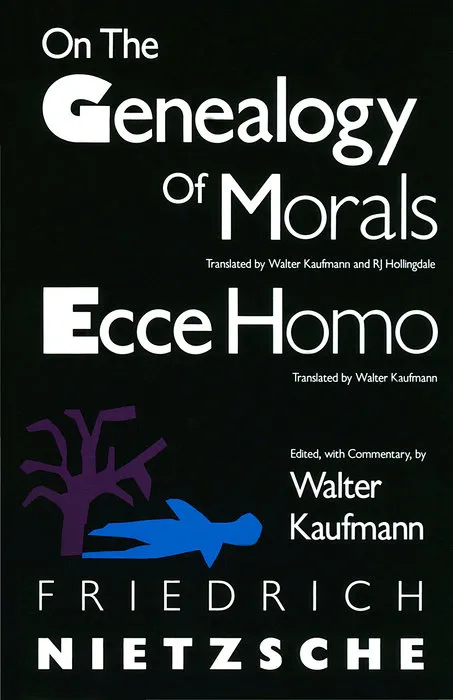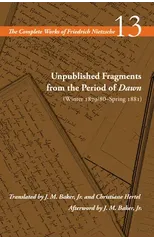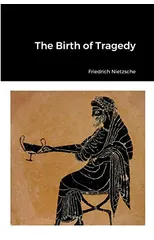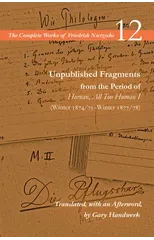On the Genealogy of Morals and Ecce Homo
(Author) Friedrich NietzscheMasterful translations of the great philosopher’s major work on ethics, along with his own remarkable review of his life and works. On the Genealogy of Morals (1887) shows Nietzsche using philsophy, psychology, and classical philology in an effort to give new direction to an ancient discipline. The work consists of three essays. The first contrasts master morality and slave morality and indicates how the term "good" has widely different meanings in each. The second inquiry deals with guilt and the bad conscience; the third with ascetic ideals—not only in religion but also in the academy. Ecce Homo, written in 1898 and first published posthumously in 1908, is Nietzsche's review of his life and works. It contains chapters on all the books he himself published. His interpretations are as fascinating as they are invaluable. Nothing Nietzsche wrote is more stunning stylistically or as a human document. Walter Kaufmann's translations are faithful of the word and spirit of Nietzsche, and his running footnote commentaries on both books are more comprehensive than those in his other Nietzsche translations because these two works have been so widely misunderstood.
Friedrich Nietzsche
Friedrich Nietzsche was a German philosopher, cultural critic, poet, and philologist, known for his profound influence on Western philosophy and literature. His most notable works include "Thus Spoke Zarathustra," "Beyond Good and Evil," and "The Birth of Tragedy." Nietzsche's writing style was characterized by his use of aphorisms, paradoxes, and poetic language, which challenged traditional philosophical conventions.
Nietzsche's contributions to literature include his exploration of existential themes, the concept of the "Ubermensch" (overman), and the reevaluation of moral values. His ideas on the will to power, eternal recurrence, and the death of God have had a lasting impact on literature, philosophy, and cultural criticism.
Nietzsche's most famous work, "Thus Spoke Zarathustra," is a philosophical novel that explores themes of individualism, self-overcoming, and the pursuit of meaning in a godless world. The book has been praised for its literary style and innovative approach to philosophical storytelling, cementing Nietzsche's legacy as one of the most influential thinkers of the modern era.






